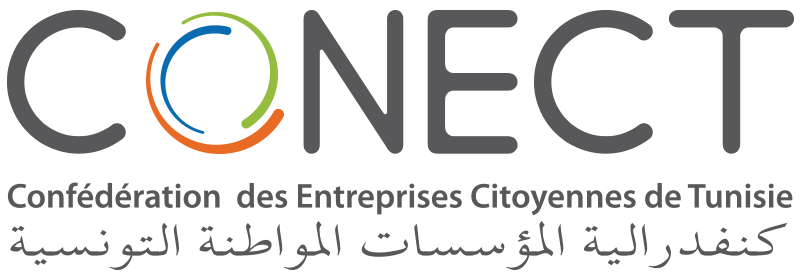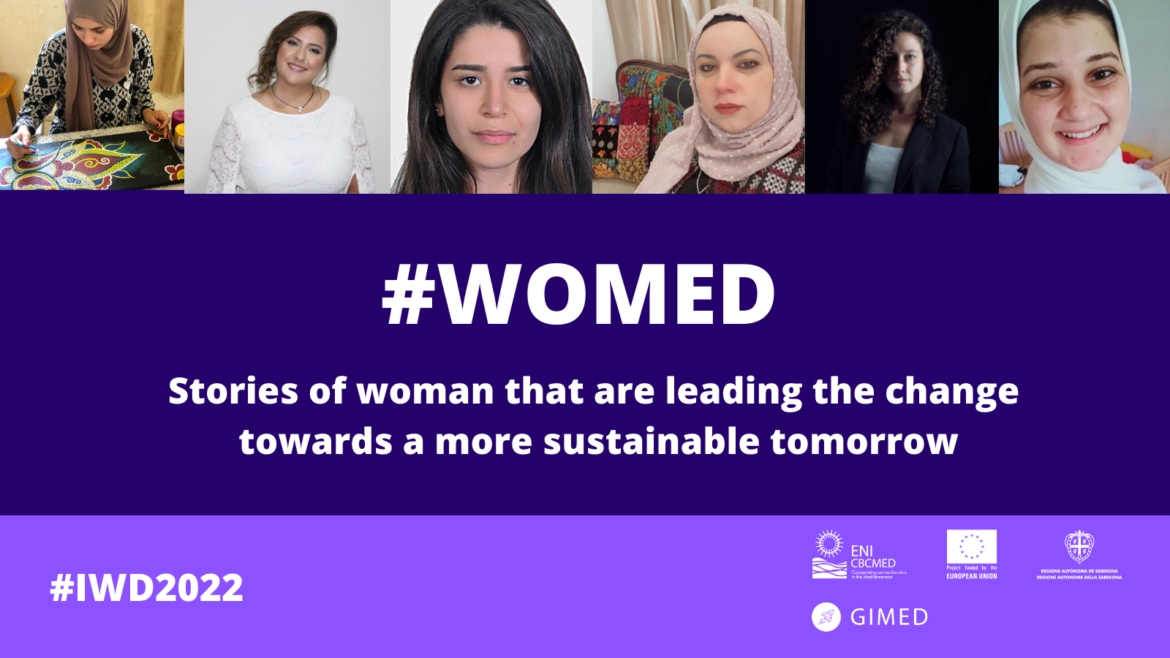Fighting for gender equality in the context of the climate crisis and disaster risk reduction is one of the most motivating challenges of the 21st century. Women and girls are effective, powerful leaders and change-makers for climate adaptation and mitigation. They are involved in many sustainability initiatives around the world and their participation and leadership results in more effective climate action.
On the occasion of the International Women’s Day 2022 (IWD), GIMED has launched a visual campaign to recognise the contribution of women across the Mediterranean. GIMED project is seeking the development of a green economy in the Mediterranean are to combat environmental degradation. It specially focuses on young graduates and women entrepreneurs, who are three times less likely to be employed than men.
Through their Green Business Plan methodology, GIMED is training and coaching with technical and financial support to a wide range of female entrepreneurs that are leading the change towards a sustainable tomorrow. This International Women’s Day, let’s claim “Gender equality today for a sustainable tomorrow”, following United Nations Women campaign. To do so, GIMED joins the campaign by showcasing how female entrepreneurs are leading this change in different countries.
How are GIMED female entrepreneurs contributing for a sustainable tomorrow?
Amany Abd Allah (Silica Project, Egypt): “We are hoping to provide the universe with material and equipment that will help clean the world and prevent any further damage to it”. Silica Project is an innovative start-up that allows medical teams to reuse some material made from silicon like gloves.
Rim Cheaib (Green Track, Lebanon): “My contribution for a sustainable tomorrow includes drawing attention to the positive outcomes of the sorting from source awareness campaigns. Such work makes me proud to be part of the social enterprise Green Track”. Green Track is a social enterprise for a sustainable waste management system, that aims to solve the waste crisis in Lebanon through the sorting at source and recycling projects lead by Green Women Team.
Dea Sbeihat (Beitcom, Palestine): “I contribute to building a sustainable tomorrow by focusing on the two most important topics, namely recycling waste that is difficult to decompose in the environment, as well as consolidating the idea of Palestinian heritage and returning to include it in our homes”. She is the owner of a project that aims to produce modern home-decorations by recycling glass, wood and other materials.
Alessandra Tranchina (Boniviri, Italy): “My contribution to sustainability starts right here: by rethinking the chain in the most sustainable way, together with farmers, and by offering to consumers products from a good, sustainable, short and transparent supply chain”. She is working at Boniviri, a start-up focused on agro-food products made with sustainable criteria and reducing the footprint carbon between distributors and consumers.
Aya Nwara (Hoor, Egypt): “Our research is being focused on the development of healthy, quality and safety food products adapted to consumer’s needs and more environment-friendly processes”. Hoor manufactures and markets natural fruit products in the local and international markets with the aim of meeting the needs of its customers, by producing high-quality and effective products of drinks and juices.
Jocelyne Saade (Grade A+, Lebanon): “I always work to improve my skills and to face every obstacle along this journey. GIMED offered me much needed knowledge to develop my green business plan, Now I am ready to develop my business and reach a better greener tomorrow”. She is a female entrepreneur behind GradeA+, whose products are upcycled from the sheep wools by introducing technology.
Hala Khatib (Sharqi Palestinian Shop, Palestine): “My project aims to upcycle used traditional Palestinian dresses into tote bags that are washable and affordable. This sustainable project will support many Palestinian families by employing female tailors and embroiders”.
Federica Ditta (Risacca, Italy): “I’ve clearly detached myself from modern consumption practices and from the dynamics of a market based only on the infinite and exponential exploitation of resources and on profit maximization in the short term”. She is a change-maker working for Risacca, a sustainable fashion project upcycling fishing nets in Mazara del Vallo to transform them into trendy bags.
“My contribution for a sustainable tomorrow includes drawing attention to the positive outcomes of the sorting from source awareness campaigns. Such work makes me proud to be part of the social enterprise Green Track”
Which challenges are they facing as women to be entrepreneurs?
Frequently, those women entrepreneurs who aim at launching their green initiatives bump into some unexpected challenges. “As women, it was very hard to be an entrepreneur as I was a student, an employee and a wife at the same time”, says Amany Abd Allah. Balancing business and family life is one of the challenges that the Egyptian entrepreneur Aya Nwara also underlines.
This same issue is trying to deal with our entrepreneur based in Palestine, Hala Khatib, who is the Founder of Sharqi Palestinian Shop. “I currently work from home, which can be a huge hassle for me as I am responsible for teaching my kids, cooking, and housework. I try my best to find a balance between doing my own project and housework”, she recognises.
Besides, some women are facing the lack of capital and experience to launch their projects. In this sense, they need to develop their access to finance skills and join capacity building trainings that could lead them towards obtaining finance in the end. Similarly, they also face the lack of a solid business network and support. “My society hasn’t been able to hand-over the same equal opportunities for everyone, specifically when it comes to believing in ideas and trausting agent’s capabilities without giving regard to his/her gender”, says Cheaib.




